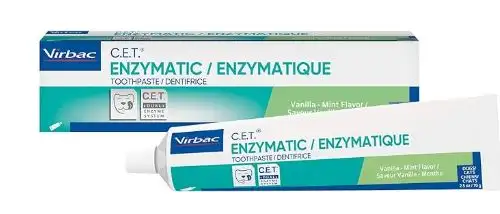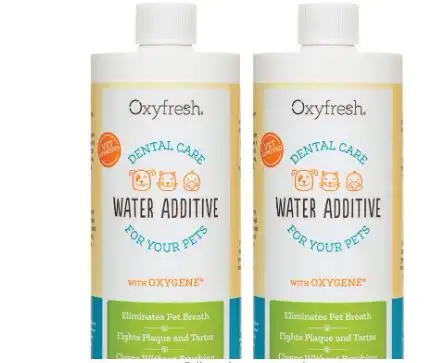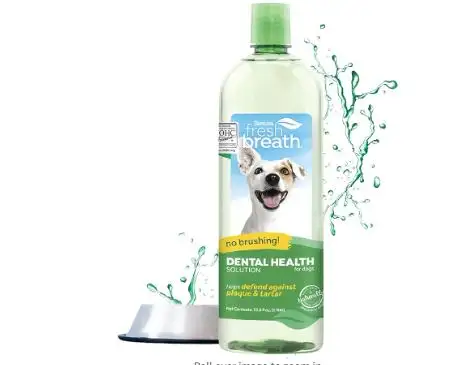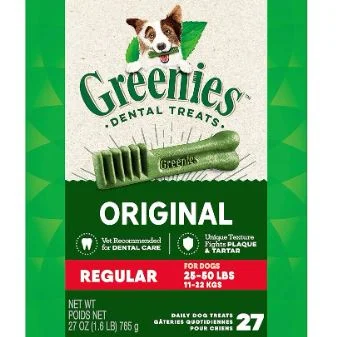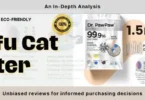Maintaining your dog’s dental health is important for their overall well-being. Poor dental hygiene can lead to plaque buildup, tartar formation, gum disease, and even systemic infections. Here’s a comprehensive guide to help you keep your furry friend’s teeth clean and healthy.
Understanding the Importance of Canine Dental Health
Proper dental care is important for dogs of all ages, just as it is for humans. Neglecting your dog’s oral health can lead to a variety of dental issues, such as plaque buildup, tartar formation, gum disease, and even dog tooth loss. Additionally, poor dental hygiene can affect your dog’s overall health. As oral problems can lead to systemic infections and other health complications.
Regular Brushing for Dogs
Brushing your dog’s teeth is the most effective way to prevent plaque and tartar buildup. Use a dog-specific toothbrush and toothpaste, as human products can be harmful if ingested. Introduce brushing gradually, and always reward your dog with treats and praise to create a positive association.
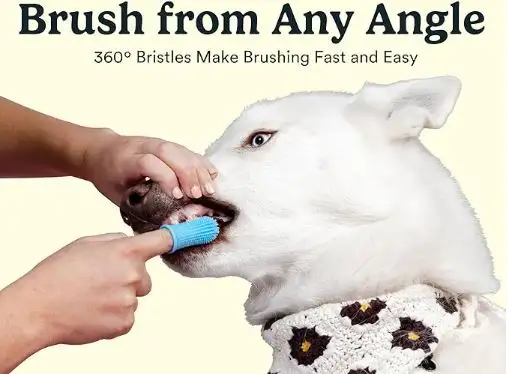
Here’s a step-by-step guide to brushing your dog’s teeth:
- Introduce Gradually: Initially, gently introduce your dog to the toothbrush and toothpaste. Allow them to sniff and taste the toothpaste to get familiar with the new routine.
- Choose the Right Time: Pick a calm and relaxed time for brushing. Avoid rushing the process, as patience is key to acclimating your dog to the experience.
- Proper Technique: Angle the toothbrush at 45 degrees and brush using gentle circular motions. Focus on the outer surfaces of the teeth, as this is where plaque tends to accumulate.
- Positive Reinforcement: Reward your dog with treats and praise after each successful brushing session. Positive reinforcement will help create a positive association with teeth brushing.
Keep Your Dog’s Smile Bright with the Best Dog Toothpaste! Try it now and see the difference!
Balanced Diet for Canine Dental Health
A well-balanced diet plays a significant role in maintaining your canine dental health. Opt for high-quality dog food that promotes dental well-being. Look for products specifically formulated to reduce plaque and tartar formation. Additionally, incorporating dental treats or toys can also aid in keeping your dog’s teeth clean.
Here’s how a balanced diet contributes to your canine dental health and ways you can add value to their nutritional intake:
Choosing Dog’s Dental-Friendly Foods
- Texture Matters: Opt for dry kibble or specially formulated dental dog food with a crunchy texture. The mechanical action of chewing on dry food can help reduce plaque buildup on teeth.
- High-Quality Ingredients: Select foods with high-quality ingredients and minimal additives. Nutrient-rich meals contribute to strong teeth and gums.
- Consider Dental Formulas: Dental diet formulas are designed to reduce tartar formation and promote oral health. These diets often have larger kibble shapes that encourage chewing.
Nutrients that Support Dog’s Dental Health
- Calcium and Phosphorus: These minerals are crucial for maintaining strong teeth and bones. Ensure your dog’s diet contains appropriate levels of calcium and phosphorus.
- Vitamin D: Vitamin D aids in calcium absorption, which is essential for dental health. Natural sunlight exposure and certain foods can provide this vitamin.
- Vitamin C: Vitamin C supports gum health by promoting collagen formation. Include foods rich in vitamin C to bolster your dog’s gum resilience.
Water Additives or Hydration
Water additives can help reduce plaque and freshen your dog’s breath. Products like Oxyfresh Premium Pet Dental Care Solution or TropiClean Fresh Breath Water Additive for Dogs are easy to use and vet-recommended.
✅ Ease of Use: Simply add the liquid to your dog’s water bowl daily.
✅ Improved Dental Health: Helps reduce plaque and tartar buildup, promoting healthier teeth and gums.
✅ Freshens Breath: Many additives contain ingredients that combat bad breath.
✅ Additional Health Benefits: Some additives include vitamins, minerals, and probiotics that support overall health.
✅ Vet Recommended: Many products are approved by the Veterinary Oral Health Council (VOHC).
❌ Taste Preference: Some dogs may not like the taste and could avoid drinking water.
❌ Digestive Issues: Some dogs might experience digestive upset, such as soft stools or lack of appetite.
❌ Dehydration Risk: If a dog refuses to drink the treated water, it could lead to dehydration.
❌ Ingredient Sensitivity: Always check for harmful ingredients like xylitol, which is toxic to dogs.
❌ Not a Replacement: Water additives should complement regular brushing and dental checkups, not replace them.
Chew on Nutritious Treats for Dogs
If you’re looking for nutritious treats that your dog will love, you can’t go wrong with options like Greenies Original Regular Natural Dog Dental Care Chews! These treats not only taste great but also support your dog’s oral health.
Why Choose Greenies Dental Chews?
Healthy Teeth and Gums: These chews are designed to fight plaque and tartar buildup, promoting healthier teeth and gums.
Delicious and Nutritious: Packed with natural ingredients and essential nutrients, these treats ensure your furry friend gets both taste and health benefits.
Veterinary Endorsement: Greenies are recommended by veterinarians and accepted by the Veterinary Oral Health Council (VOHC).
Give your dog the gift of a healthy smile with these delicious and nutritious dental chews!
Check out the Greenies Dental Chews here: Buy This On Amazon!
✅ Effective Plaque and Tartar Control: Helps clean teeth down to the gumline.
✅ Vet Recommended: Accepted by the Veterinary Oral Health Council (VOHC).
✅ Natural Ingredients: Made with easily digestible, natural ingredients plus vitamins and minerals.
✅ Great Taste: Dogs love the original flavor and texture.
❌ Price: Some users feel the treats are a bit pricey compared to other dental chews.
❌ Size Variations: Some customers have noted that the size of the chews can vary slightly.
Choose dental treats designed to promote oral health. These treats often have a unique texture that helps scrub teeth and massage gums while your dog chews.
- Fruits and Veggies: Offer dog-safe fruits and vegetables like carrots, apples, and celery as treats. These foods can help clean teeth naturally.
Dental Wipes
For quick cleanings between brushings, dental wipes can be a convenient option. Dog Dental Care Wipes are easy to use and help reduce plaque and freshen breath.
Avoid Harmful Foods for Dogs
- Sugary and Sticky Treats: Sugary foods can contribute to plaque formation, while sticky treats can adhere to teeth and promote bacterial growth. Limit these treats to your dog’s diet.
- Bones and Hard Chews: Avoid feeding your dog cooked bones or excessively hard chews, as they can lead to dental fractures. Opt for safe, purpose-designed dental chews.
Canine Dental Health and Overall Well-Being:
- Systemic Connections: Poor dental health can impact your dog’s overall health. Dental issues have been linked to heart, liver, and kidney problems. Prioritizing a balanced diet supports both oral and systemic well-being.
Consultation with Your Vet:
- Personalized Guidance: Consult your veterinarian for dietary recommendations tailored to your dog’s specific needs. Factors such as age, breed, and existing dental conditions can influence dietary choices.
Your Role:
- Consistency: Maintain a consistent feeding schedule and portion sizes. Avoid overfeeding, as excess weight can contribute to dental problems.
- Monitor Chewing Habits: Observe your dog’s chewing habits to ensure they’re comfortably consuming their food. Address any difficulties or discomfort with your veterinarian.
By providing a balanced and nutritious diet, you’re empowering your dog to maintain strong teeth and healthy gums. A well-nourished dog is not only happier but also more likely to enjoy a lifetime of vibrant dental health.
Regular Dental Checkups for Dog Dental Health
Just like humans, dogs also require regular dental checkups. Schedule routine visits to your veterinarian, who can perform thorough dental examinations and cleanings. These checkups allow early detection of any dental issues and enable timely interventions to prevent further complications.
Here’s how regular dental checkups can add substantial value to your dog’s dental care:
Thorough Canine Dental Examination
- Early Detection: Veterinarians are trained to identify dental issues that may not be apparent to the naked eye. Regular checkups allow for the early detection of problems like tooth decay, gum disease, or oral tumors.
- Comprehensive Assessment: Your veterinarian will examine your dog’s teeth, gums, and oral cavity thoroughly, assessing their overall dental health. This assessment is essential for devising a tailored dental care plan.
Professional Dog Dental Cleaning
- Plaque and Tartar Removal: Even with regular brushing, plaque, and tartar can accumulate on your dog’s teeth. Professional dental cleanings involve the removal of these deposits, reducing the risk of gum disease and tooth decay.
- Polishing: After plaque and tartar removal, your veterinarian will polish your dog’s teeth to create a smooth surface that discourages future plaque buildup.
Personalized Dog Dental Care Advice
- Home Care Tips: Your veterinarian will provide you with practical guidance on how to improve your dog’s dental care routine at home. This can include brushing techniques, suitable dental products, and advice on maintaining healthy dental habits.
- Dietary Recommendations: Your vet may recommend specific foods or dental treats that can contribute to your dog’s oral health. Proper nutrition plays a pivotal role in maintaining strong teeth and gums.
Preventing Dog Dental Complications
- Avoiding Pain and Discomfort: Regular dental checkups can prevent dental issues from progressing to a point where they cause discomfort or pain for your dog. Timely interventions can spare your pet unnecessary suffering.
- Enhanced Quality of Life: By addressing dental problems early, you’re ensuring your dog can enjoy their meals, playtime, and interactions without hindrances from dental discomfort.
Monitoring Canine Overall Health:
- Systemic Connections: Dental health is closely linked to overall health. Dental problems can potentially lead to systemic issues affecting vital organs. Regular dental checkups allow for monitoring and early intervention if needed.
Frequency of Canine Dental Checkups:
- Tailored Schedule: The frequency of dental checkups may vary based on your dog’s age, breed, and existing dental health. Your veterinarian will recommend a schedule that suits your pet’s individual needs.
Your Role:
- Observe Behavior: Pay attention to changes in your dog’s eating habits, excessive drooling, bad breath, or pawing at the mouth. These could be signs of dental discomfort and warrant a visit to the veterinarian.
- Consistency: Adhere to the recommended dental checkup schedule. Regular visits can prevent minor issues from evolving into major dental problems.
By prioritizing regular dental checkups, you’re investing in your dog’s long-term oral health and overall happiness. These appointments offer a comprehensive approach to maintaining your canine companion’s bright smile and ensuring their quality of life.
Chew Toys and Canine Dental Treats
Chew toys and dental treats are valuable assets in your dog’s oral care routine. Dental toys, such as rubber chew toys or dental bones, can help scrape away plaque and tartar while providing mental stimulation for your pet. Choose appropriate-sized toys to avoid choking hazards.
Keep your pup’s teeth sparkling clean and their breath fresh with PEDIGREE DENTASTIX! Perfect for toy and small dogs, these dental treats are a delicious way to maintain their oral health.
Dog Chew Toys
- Plaque Removal: Chew toys, such as rubber dental chews, are designed with textured surfaces that help scrape away plaque and tartar as your dog chews. This natural abrasive action mimics the effect of brushing, promoting healthier gums and cleaner teeth.
- Gum Stimulation: The act of chewing on these toys stimulates your dog’s gums, increasing blood flow and promoting gum health. Healthy gums are essential for preventing gum disease and maintaining strong teeth.
- Mental Stimulation: Chew toys provide mental enrichment and help alleviate boredom, which can contribute to overall well-being. Engaged and mentally active dogs are less likely to engage in destructive behaviors.
Dog’s Dental Treats
- Texture Matters: Dental treats are formulated with a specific texture that helps scrub teeth and massage gums while your dog chews. This texture helps dislodge food particles and prevent plaque buildup.
- Breath Freshening: Many dental treats contain natural ingredients like parsley, mint, or chlorophyll that help freshen your dog’s breath. This can be particularly beneficial for dogs with less-than-pleasant breath.
- Reduced Caloric Intake: Dental treats can serve as a low-calorie alternative to regular treats, making them a great option for dogs on a controlled diet. You can reward your pup while supporting their dental health.
Choosing the Right Dog Chew Toys and Dental Treats:
- Size Matters: Select toys and treats that are appropriate for your dog’s size to prevent choking hazards.
- Consult Your Vet: Consult your veterinarian before introducing new toys or treats, especially if your dog has existing dental issues or dietary restrictions.
- Quality Assurance: Opt for products from reputable brands that prioritize quality and safety. Look for items endorsed by veterinary professionals.
Usage Tips:
- Supervision: Always supervise your dog while they’re enjoying chew toys to ensure they don’t bite off and swallow large pieces.
- Moderation: While dental treats are beneficial, use them in moderation to avoid overfeeding and excessive caloric intake.
- Variety: Rotate between different types of chew toys and dental treats to keep your dog engaged and prevent boredom.
By incorporating chew toys and dental treats into your dog’s routine, you’re taking proactive steps to enhance their oral health while providing them with enjoyable experiences.
Conclusion
Canine dental health is an essential aspect of its overall well-being, and as loving pet owners, we should prioritize it. By following a regular teeth-brushing routine, providing a balanced diet, incorporating dental treats and toys, and scheduling routine dental checkups, you can ensure your furry companion enjoys excellent oral health. Remember, a healthy mouth leads to a happy and thriving dog, so let’s give them the best care they deserve.
Disclosure: This content is reader-supported, as an Amazon Associate, we earn from qualifying purchases. Support us!
Frequently Asked Questions (FAQs)
Why is dental health important for dogs?
Dental health is essential for dogs because it directly impacts their overall well-being. Neglecting oral hygiene can lead to plaque, tartar, gum disease, and tooth loss, which can affect your dog’s ability to eat, play, and lead a comfortable life. Additionally, poor dental health can also cause systemic infections and other health complications.
How often should I brush my dog’s teeth?
It is recommended to brush your dog’s teeth at least 2-3 times a week. However, daily brushing is even better for maintaining optimal dental health. Consistency is key to preventing plaque and tartar buildup.
What kind of toothbrush and toothpaste should I use for my dog?
Use a dog-specific toothbrush with soft bristles to avoid causing discomfort to your pet’s gums. For toothpaste, choose a product specifically formulated for dogs, as human toothpaste can be harmful if ingested.
My dog doesn’t like getting their teeth brushed. Any tips to make it easier?
Introduce teeth brushing gradually and be patient with your dog’s response. Allow them to sniff and taste the toothpaste first. Use positive reinforcement, such as treats and praise, to create a positive association with the activity.
Can diet affect my dog’s dental health?
Yes, diet plays a crucial role in your dog’s dental health. Feeding a high-quality dog food that promotes dental well-being can reduce plaque and tartar formation. Dental treats and toys can also help keep teeth clean by scraping away the buildup.
How often should I take my dog for dental checkups?
It is recommended to schedule routine dental checkups with your veterinarian at least once a year. Regular checkups allow early detection of dental issues and timely interventions to prevent further complications.
Are dental treats and toys safe for my dog?
Dental treats and toys designed specifically for dogs are generally safe when used correctly. Always choose appropriate-sized toys to avoid choking hazards, and monitor your dog during playtime.
My dog has bad breath. Is it a cause for concern?
Bad breath in dogs can be a sign of dental problems such as gum disease or tooth decay. While some dog breath odor is normal, persistent bad breath may indicate an underlying issue, and it’s advisable to consult your veterinarian for a dental checkup.
Can small dog breeds have different dental needs than larger breeds?
Yes, small dog breeds are more prone to dental problems due to their smaller mouths and crowded teeth. They might require more frequent dental care and checkups to maintain their oral health.
Can dental issues in dogs lead to other health problems?
Yes, dental problems in dogs can have a cascading effect on their overall health. Untreated dental issues can lead to systemic infections, affect the heart, liver, and kidneys, and potentially reduce their lifespan.

